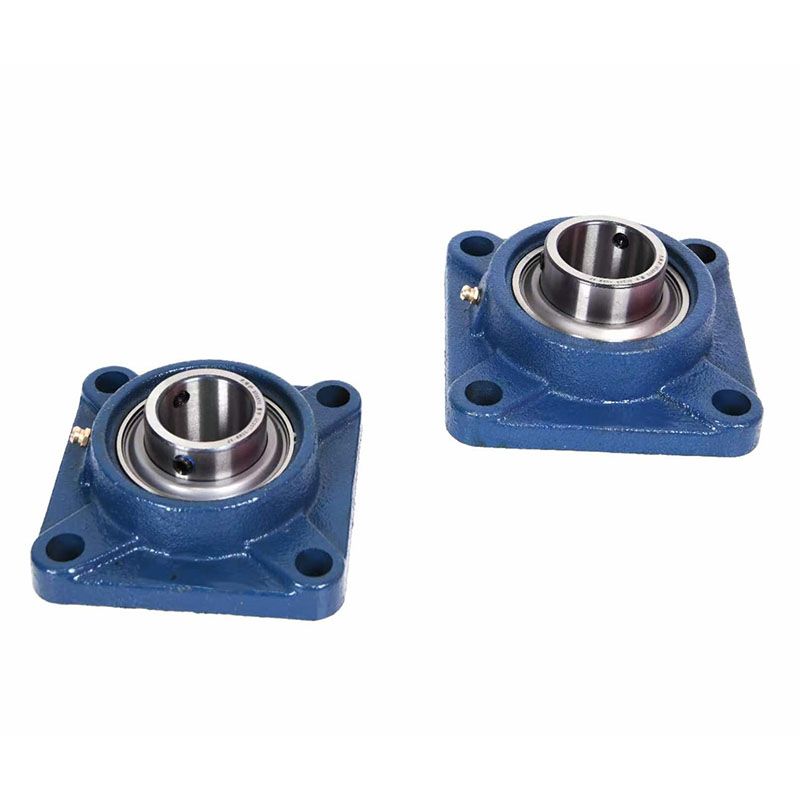Apr . 26, 2024 10:27 Back to list
Common Symptoms of a Bad Wheel Bearing
Small, but mighty.
That might be the best way to describe a wheel bearing - a key component to safe and efficient driving. A bad wheel bearing, however, can really impact your driving - and your safety. And it's a big part of why a faulty wheel bearing should be immediately serviced.
In this post, we'll help you understand the importance of wheel bearings, how to identify wheel bearing problems, and how any of our local GreatWater-affiliated shops can help maintain and replace these key components so you can hit the road with confidence again.
Maintenance Free 88102 Eccentric Bearing For Agriculture Machinery
Read on to learn more:
UNDERSTANDING WHEEL BEARINGS
Wheel bearings may sound complex, but their function is fairly simple. At the very basic level, wheel bearings are metal rings that connect the wheel and the axle. Within the metal ring is a series of ball bearings or tapered bearings, which help the wheel rotate efficiently and effectively, aiding in acceleration, braking, cornering, steering, and more vital driving functions.
COMMON SYMPTOMS OF A FAILING WHEEL BEARING
While you may not be able to immediately visually identify a faulty wheel bearing based on its tough-to-access location between the wheel and the axle, you can listen and feel for signs of an issue.
Here's a look at bad wheel bearing symptoms:
- Strange noises: From grinding to clunking, if unusual noises are coming from your wheel wells, it could be indicative of a problem with the wheel bearings. Listen to see if the noise changes when you accelerate or brake your vehicle. If it gets louder, it's another symptom that could indicate a problem.
- Unresponsive steering: The steering wheel of your vehicle tends to be pretty sensitive. That said, if you notice it becoming more difficult to steer or that you have to turn your steering wheel more to get your vehicle to respond, the wheel bearings could be at fault. Another common symptom associated with bad wheel bearings is steering wheel vibrations.
- Braking problems: Loose or damaged bearings cause the rotors to push the piston even further when the brake pedal is pressed. This can lead to slow braking or even brake slips. If your vehicle has anti-lock brakes and the ABS icon lights up your dashboard, get the code checked to see if the wheel bearings are the problem.
HOW TO CHECK FOR A BAD WHEEL BEARING
If any of the signs and symptoms we mentioned above sound familiar, then it's important to have your wheel bearings inspected. While you could possibly do this yourself at home with the help of a carjack, it's probably best to just leave it to the pros by scheduling an appointment at any of our local service centers for a thorough assessment.
LIFESPAN OF WHEEL BEARINGS
Most quality wheel bearings can last anywhere from 100,000 to 150,000 miles before replacement is necessary. However, once it’s time for your vehicle’s wheel bearings to be replaced it’s important to do so quickly to keep your vehicle running smoothly and safely.
CAUSES OF WHEEL BEARING FAILURE
Because of their long lifespan, failure is usually caused by the typical everyday wear and tear from driving your vehicle over time.
However, it is worth noting that the conditions you drive in can impact how quickly your bearings will need to be replaced. For instance, if you regularly drive in muddy or wet conditions, water and other contaminants could wear away at bearings faster than normal.
Some other causes of wheel bearing failure may include:
- Aftermarket modifications, like bigger rims or performance tires, that place more pressure on the bearings.
- Impact damage from hitting a pothole, curb, or other objects can accelerate wear and tear.
- Improper installation or using a poor-quality wheel bearing can cause premature failure.
QUALITY REPLACEMENT AND MAINTENANCE
When you visit any of our locally run service centers for wheel bearing replacement, you can rest assured that the job will be done right - that’s why each GreatWater-affiliated shop offers an industry-leading 3 Year/36,000 Mile Nationwide Warranty. But you can count on more than just premium service when you bring your vehicle to any of our partner locations, expect a first-rate customer experience as well.
We don't take shortcuts when it comes to our work, and we won't mislead you or sugarcoat anything either. As a result, we've turned one-time customers into life-long ones. Doing right by our customers is the best and only way we work - regardless of the type of vehicle issue you're experiencing. Contact us today to schedule an appointment to address any wheel-bearing, or any other repair or maintenance.
CONTACT GREATWATER 360 TODAY
For more information on the importance of a wheel bearing and how to know when it might be time to replace one or more of your vehicle's bearings, contact or visit your nearest GreatWater service center today.
Latest news
-
Spherical Bearings Enabling Bionic Joint Over-Rotation
NewsAug.22,2025
-
Stainless Steel Sphericals: Botong's Harsh-Environment Heroes
NewsAug.22,2025
-
Spherical Roller Thrust Bearings For Space Elevator Anchors
NewsAug.22,2025
-
Axial Spherical Roller Bearing: Xingtai's Motion Architects
NewsAug.22,2025
-
Ceramic Coated Bearings For Fusion Reactor Plasma Whirlpools
NewsAug.22,2025
-
Botong's Zirconia Bearing: Defying Metal Limits
NewsAug.22,2025
